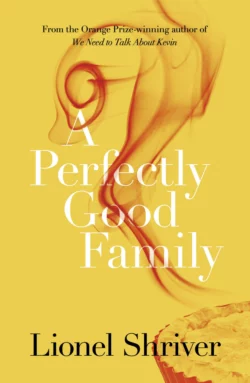A Perfectly Good Family

Lionel Shriver
Тип: электронная книга
Жанр: Современная зарубежная литература
Язык: на английском языке
Стоимость: 697.37 ₽
Статус: В продаже
Издательство: HarperCollins
Дата публикации: 16.04.2024
Отзывы: Пока нет Добавить отзыв
О книге: Following the success of ‘We Need to Talk About Kevin’ and ‘The Post-Birthday World’, ‘A Perfectly Good Family’ is coming back into print after being unavailable for years.After having escaped for years to London, Corlis McCrea returns to the grand Reconstruction mansion where she grew up in North Carolina, now willed to the three grown children following the death of their parents. All three want the house.Fiscal necessity dictates that two must buy a third out. Just as she was torn as a girl, the sister must choose between her decent younger brother and the renegade eldest—the black sheep who covets his legacy in order to destroy it. The adult siblings re-enact the deep enmities and loyalties of childhood, as each bids for a bigger slice of the pie.